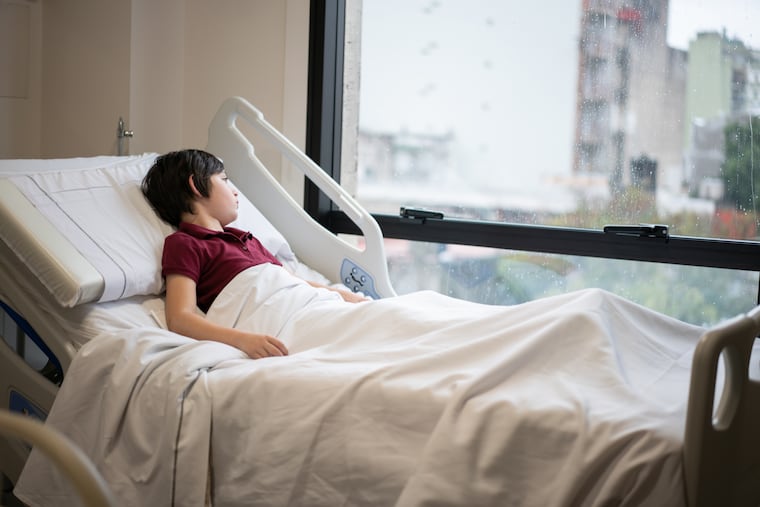Medical Mystery: What caused boy’s sudden extreme muscle weakness?
A previously healthy 11-year-old Asian boy came into the ER with leg pains and muscle weakness after a soccer game. He could hardly stand and his parents had to carry him into the exam room.

A previously healthy 11-year-old boy came into our emergency room with leg pains and muscle weakness after he had played soccer and then binged on chocolate chip cookies. He could hardly stand and his parents had to carry him into the exam room.
He did not have a fever and the rest of his vital signs were normal. There have been several recent cases of children in our clinic with conversion disorders where after experiencing a significant emotional trauma, an individual feels a loss of all muscle strength, but all physical tests are normal and an inciting stressful event is usually identified. This didn’t seem the case for this boy, as his family seemed genuinely concerned, and he was still in his soccer gear as he lay on the examining room bed.
An assessment of his breathing and circulation were normal and a quick check of his sugar level, which can identify issues such as hypoglycemia, was normal. The remainder of his exam was within normal limits except for significant muscle weakness in his upper body and low reflexes in his arms and legs.
» READ MORE: Medical mystery: Strange symptoms five years after cancer remission
Could this be myasthenia gravis, or Guillain-Barre? These conditions can cause muscle weakness after exertion, but usually affect the eye muscles, as well, and his eyes were normal. As the team decided what blood tests to order, they looked at the heart monitor and noticed something a little odd. There were two humps after his QRS interval — the main spike one would see on a heart monitoring device — instead of the usual one.
Solution
An EKG was ordered and showed more definitively what was on the heart monitor: a “U” wave. A closer look at the EKG findings also showed a depression of some of the electrical areas of the heart, including ST depression and flat “T” waves specific to low potassium levels. But why?
Low potassium, or hypokalemia, is uncommon in children and is usually caused by identifiable conditions such as severe diarrhea, certain medications, cystic fibrosis, and even excessive licorice consumption. None of these seemed reasonable as he was growing well and had just come from a soccer game.
All his labs came back normal except for his potassium level which was less than half of normal levels and endangering his heart and muscles. He was given potassium intravenously in the emergency room and his symptoms resolved. He saw our kidney doctor a few weeks later, who reviewed his case and ordered genetic testing for an uncommon cause of hypokalemia, Hypokalemic Periodic Paralysis (HypoPP), which showed he had the condition.
HypoPP is usually inherited from other family members, but can occur on its own. The incidence is about 1 in 100,000 individuals and symptoms typically begin in the early teen years. HypoPP causes potassium to flow from the blood, abnormally, into the muscle cells, thus causing low levels that affect mostly the large muscles of the shoulders and hips.
» READ MORE: Medical mystery: A nose bleed signaled an uncommon disorder
HypoPP occurs most commonly upon awakening or falling asleep after a strenuous day, but also can occur after exercising and having a high carbohydrate diet, which causes your body to make adrenaline and insulin, which drives potassium back into cells and out of the bloodstream where it is needed. This was likely the case with this patient, as he had played soccer and then binged on cookies.
Individuals with HypoPP should avoid strenuous exercise, consume frequent small meals to avoid carbohydrate load, decrease their salt intake, and try to avoid stressful events.
Our patient was continued on daily oral potassium supplements and advised to eat a banana after moderate exercise, instead of his favorite cookie.
Daniel R. Taylor is an associate professor at Drexel University College of Medicine and director of community pediatrics and child advocacy at St. Christopher’s Hospital for Children.